Many people think that treasures and their searches are legends for children and there is no point in that. However, today there are a huge number of people who are engaged in such activities. As a rule, these are collectors who, in addition to exchanging and buying rare things, independently search for them all over the world. The best gadget for this hobby is a metal detector. With its help, you can find valuable metals even underground. However, not everyone knows how to choose a metal detector and what characteristics are important when buying. However, without this knowledge, it is extremely difficult to understand which one is better and is right for you. Therefore, it is recommended that you study this article before purchasing the unit in question.
Content
Principles and design of modern metal detectors
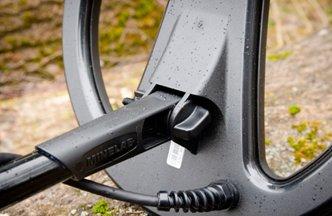
To figure out which metal detector to choose for independent use, the first step is to study the general principles of operation of such devices. The device for finding coins or gold depends on the design features of the model. Today, there are 4 main constructive types of metal detectors. Let's consider each of them in more detail.
Standard magnetometers
The basic options for gold detectors that can be found today are called magnetometers. Their work is based on the response to anomalous zones of the magnetic field of our planet. Such devices are not in demand, since they are of no value to collectors and lovers of treasure hunting.
The devices in question can react to magnetic fields, but they do not react to common metal, coins or gold. Therefore, treasure hunters do not use them.
Induction metal detectors
Induction metal detectors follow. As the name implies, such devices are based on induction. Such metal detectors can be called the most popular among treasure hunters today. The mechanism has two coils. The first one is necessary for the formation of a magnetic field. The second coil does not emit any signals.
If the device is turned on and approaches the metal, then the magnetic field formed by the first coil immediately changes its polarity. Thus, a signal appears, indicating to the user that there is metal nearby. It should be noted that more modern metal detector models based on this principle may have additional functions. For example, some of them provide increased information content for the user. When the device approaches metal, it can learn about its depth underground, relative conductivity, and other characteristics.
Pulse induction metal detectors
Another type of metal detectors also involves the use of induction, but here we are talking about the impulse form of this phenomenon. The considered devices work on the same principle as the previous ones. However, the maximum efficiency is noted here, since with the help of this technology, manufacturers were able to achieve maximum sensitivity of the mechanism to metal. At the same time, it practically does not react to anomalies of the earth's magnetic field.
It is worth highlighting 2 main disadvantages of such devices. First, their continuous operation requires an impressive amount of energy. This requires a large, powerful battery. Secondly, such a device can strongly react even to small metal parts, which will distract from the search for more valuable materials.
Metal detectors with dependent generator
And, finally, metal detectors, which are based on a dependent generator or detuning. These are less popular and cheaper metal detectors that have a low level of sensitivity relative to those previously considered. Metal objects on or underground generate inductance fluctuations, as a result of which an impact on the search coil occurs, which gives a signal to the owner.
The main types of metal detectors
Now we propose to consider the classification of metal detectors not according to the principles of their internal mechanism, but according to their purpose and other parameters.
Security metal detectors
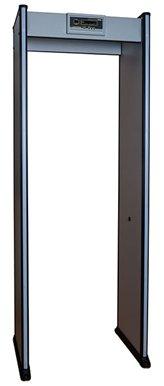
First of all, we will consider the models of metal detectors that are most often encountered by ordinary people. These are security devices that are used by law enforcement agencies to prevent situations when intruders carry dangerous objects into any territory. Such devices can be seen at airports, bus stations, city events, and so on.
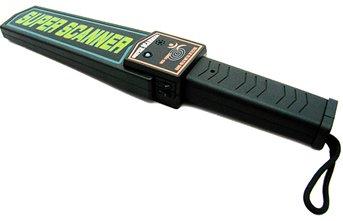
They can be stationary or portable. In the first case, the metal detector looks like a tall frame that must be passed through. If metal is carried through the working area of the frame, the mechanism will detect this and give a corresponding signal.
In addition, security metal detectors can be portable. These are small items that are used manually by public or private workers to find metal in hard-to-reach places. It is enough to direct the working surface of the device to the desired area, and it will determine the presence of metal in it.
Industrial metal detectors
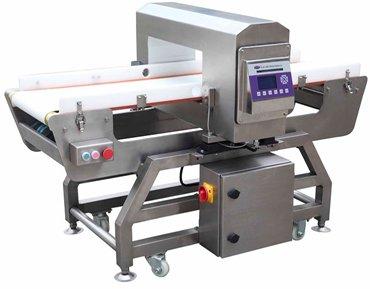
Quite often, large manufacturers use special industrial metal detectors in their factories. These are massive stationary devices through which the company's products are passed in order to identify the metal in its composition. For example, in many wood plank factories, all products are driven through metal detectors. As a rule, this is due to the fact that in the manufacture of equipment can be used that cannot work with metal and there is a risk of its failure.
Ground metal detectors
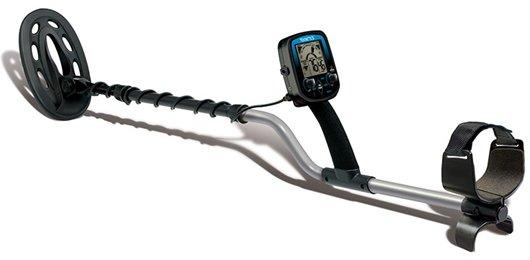
The most common variant of the metal detector among treasure hunters, which involves the search for small metal objects under a small layer of earth. With the help of such a device, you can easily find various old coins, artifacts and the like. In most cases, the ground model of a metal detector allows you to determine not only the presence of metal under the ground, but also its type.
Military metal detectors
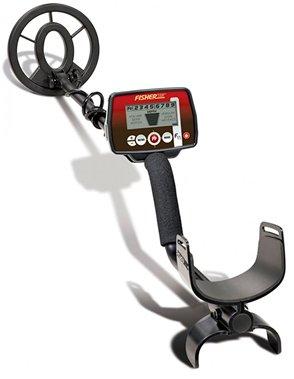
Metal detectors designed for military engineers have a separate classification among their counterparts. However, soil models can also cope with a military task if they are of good quality and sensitivity. Nevertheless, the military forces are adopting specialized devices that allow them to detect mines and other dangerous objects underground.
The main characteristics for a military metal detector are a good indicator of sensitivity, ease of use, and the possibility of long-term operation without recharging the battery. In this regard, not every ground metal detector can cope with the tasks of military models.
Underwater metal detectors
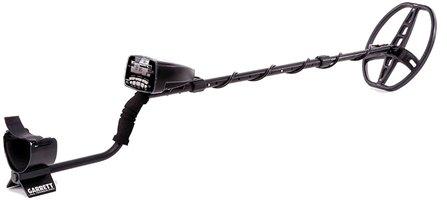
Few people know, but metal detectors can be used not only to find objects under the ground, but also under water. For this, a special branch of such devices is used, designed to work under water. The main disadvantage is the shallow depth at which it can work effectively. However, depth models are used for this.
Depth metal detectors
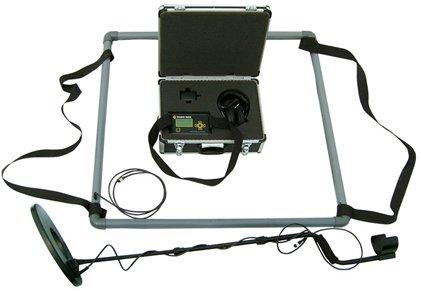
The last type of metal detector that will be discussed in this article is a deep one. The shape of deep metal detectors is somewhat reminiscent of stationary security ones. They can detect massive metal objects deep under water. However, it is important to highlight the significant advantage of such products. They cannot identify the type of metal that was detected. Models of ground, military and underwater metal detectors can do this. This is due to the fact that the deep aggregates work according to different principles.
The most popular metal detector manufacturers
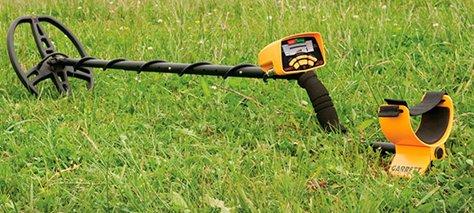
Today we can single out a list of the most popular metal detector manufacturers with good experience in the manufacture of their products. They have long earned a good reputation and customer confidence. By purchasing their products, you are guaranteed to receive high-quality and effective products. Therefore, if you do not have time to understand the technical intricacies of the units in question, then you can simply purchase products from one of the following brands:
- Minelab;
- Fisher;
- Aka;
- Garrett;
- Whites.
Parameters for choosing a metal detector
Now we will consider the most important parameters, which are recommended to pay attention to when choosing in the first place. It is worth examining each of them in more detail.
Detection depth
First of all, it is necessary to assess the effectiveness of the metal detector. This indicator is determined by the depth of detection, which, in turn, is determined by the frequency of the device. The higher the frequency, the better the machine can compensate for soil interference that interferes with the search for the desired objects. Let's consider the most common frequency indicators:
- 2.5 kHz. The minimum frequency indicator that is set in budget models of metal detectors. A device with such a frequency can only detect a fairly massive metal object that is not located too deep underground. Small objects, such as old coins, may not be captured by this model.
- 7 kHz. An improved indicator, which is much more effective than the first one, but it is still not enough to conduct effective searches. Such models can be recommended for beginners who have only recently become interested in the activities of treasure hunters. The detection depth of metals at a metal detector with such a frequency does not exceed one meter.
- 10 kHz or more. These are already professional metal detectors that are used by specialists. Allows you to find metals at an impressive depth, even with low conductivity. Excellent performance on beaches and similar soils.
- Some manufacturers provide the ability to change the frequency of operation in their models. This allows you to search at any depth with any kind of soil. The only drawback is the cost is too high. Therefore, such a device is recommended only for professional treasure hunters.
Spectrum of metals
Not every metal detector can pick up any metal under the ground. For example, if you buy the most budget model with a low frequency, then it will be able to catch only 1-2 types of metals. However, more expensive devices work with a large list of metals and can also detect alloys.It all depends on what you want to look for with the purchased device.
Ground balance
More expensive models are equipped with a ground balance function. Thus, the user is able to determine important soil parameters. This includes its level of contamination as well as its structure. Based on the information received, the owner establishes settings suitable for such a soil, allowing him to conduct the most effective searches in this location.
How much does a metal detector cost
Now let's consider the approximate cost for which you can buy a suitable metal detector today. The final price tag of a suitable device depends on what goals you are pursuing:
- If you are a beginner, then you should not immediately purchase an expensive professional metal detector with many additional functions. First you need to try yourself in this hobby and gain experience. Therefore, it is recommended to buy a budget model costing up to 20 thousand rubles.
- For people with experience, a more advanced model is required with a good frequency (above 7 kHz) and additional functions that increase the efficiency of finding the desired objects. The cost of such options ranges from 20 to 30 thousand rubles.
- Professional equipment with maximum efficiency and the presence of many additional functions will cost more than 30 thousand rubles. This also includes massive metal detectors, for example, deep. Such a device can have the ability to change frequencies, detect most types of metals and alloys, and so on.



